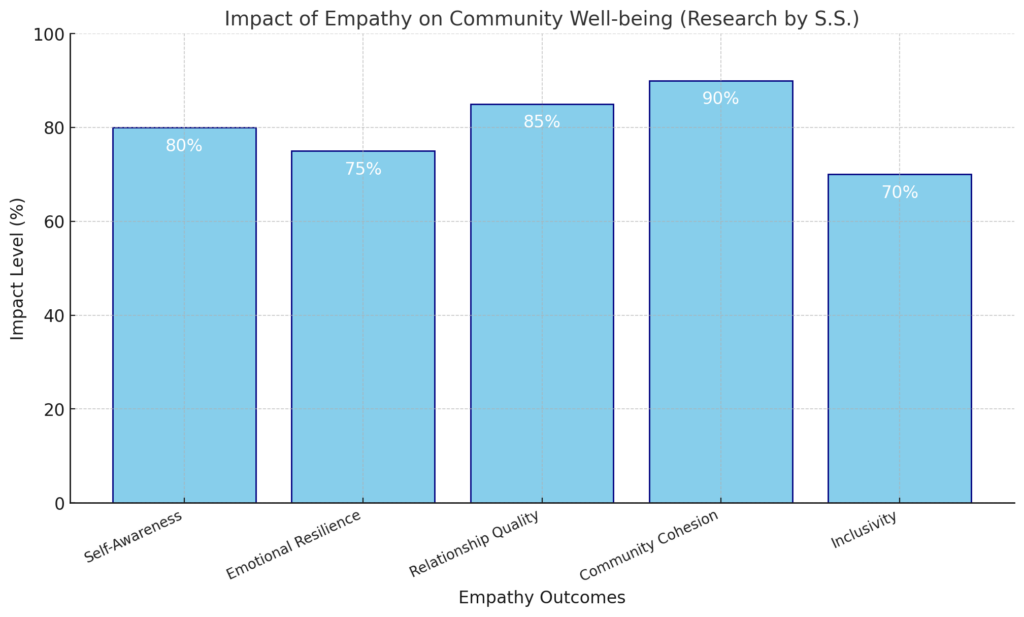In a world that often feels divided, empathy stands as a powerful tool to bridge gaps, heal wounds, and forge meaningful connections. Empathy is more than just understanding another’s feelings—it’s about taking those feelings into action. In this post, we’ll explore how embracing compassion not only enriches our own lives but also transforms our communities.
Understanding Empathy
Empathy is the art of stepping into someone else’s shoes, seeing the world through their eyes, and feeling what they feel. This emotional connection enables us to offer genuine support and understanding. While sympathy acknowledges another’s hardship, empathy drives us to respond with kindness, care, and actionable support.
The Difference Between Sympathy and Empathy
- Sympathy: Recognizes someone’s hardship and often expresses pity.
- Empathy: Delves deeper by connecting emotionally and understanding the personal context behind those hardships.
By choosing empathy, we are committing to a path that involves active listening and compassionate action—cornerstones of a more connected society.
The Role of Empathy in Personal Growth
Living a compassionate life isn’t just about helping others—it also nurtures our personal development. When we allow ourselves to empathize with others, we open the door to self-reflection, vulnerability, and growth. Here’s how:
- Enhanced Self-Awareness: By understanding others, we gain insights into our own feelings and behaviors.
- Emotional Resilience: Empathy helps us navigate difficult emotions, making us better equipped to handle life’s challenges.
- Improved Relationships: Cultivating empathy builds trust and understanding, leading to deeper and more fulfilling connections with those around us.

Cultivating Empathy in Daily Life
The beauty of empathy is that it can be practiced daily. Here are some actionable steps to integrate empathy into your routine:
- Active Listening: When engaging in conversations, focus entirely on the other person. Put aside distractions and truly listen to understand their perspective.
- Ask Open-Ended Questions: Encourage others to share their stories by asking questions that require more than a yes or no answer.
- Practice Mindfulness: Regular mindfulness exercises can help you become more attuned to your own emotions, making it easier to relate to others.
- Volunteer and Give Back: Engage in community service or support a cause you care about. These experiences can deepen your sense of connection and compassion for those facing hardships.
Empathy’s Ripple Effect in the Community
When empathy becomes a shared value within a community, its impact is transformative. Empathetic communities are more inclusive, resilient, and supportive. Here are a few ways empathy drives positive change:
- Fostering Inclusivity: Empathy encourages us to celebrate diversity and understand that everyone’s experiences are unique and valuable.
- Strengthening Support Networks: In times of crisis, empathetic communities are more likely to come together, offering both practical assistance and emotional support.
- Building Bridges: By understanding different perspectives, we can break down stereotypes and build bridges across cultural, social, and economic divides.
Conclusion
Embracing empathy is a journey—one that requires intentionality and a willingness to see the world through a compassionate lens. Every act of kindness, every moment of genuine listening, contributes to a larger tapestry of positive change. As we incorporate empathy into our daily lives, we not only elevate our personal well-being but also help create a more understanding and supportive world.
Remember, empathy is a ripple effect. It starts with one person, one act, and then spreads outward, touching lives in ways we might never fully understand. Today, challenge yourself to engage in one small act of empathy. You might be surprised at the powerful, lasting impact it can have—both on you and those around you.

Research

Written by: “CEO”


